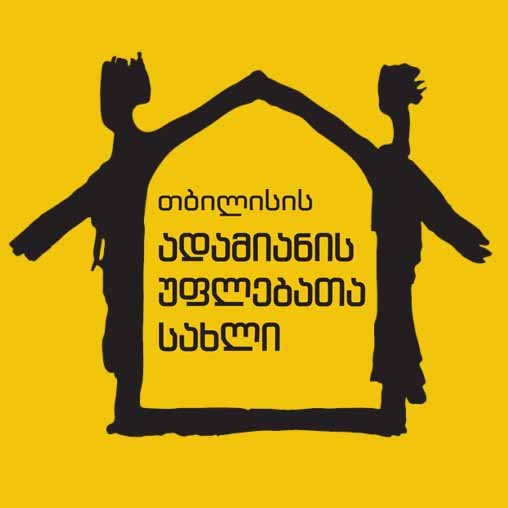News
Human Rights Center finds impermissible to conduct coercive psychiatric examination upon a minor victim
14.02.2023

Font size
Tbilisi Court of Appeals hears an appellate complaint lodged by the defense requesting psychiatric examination to be conducted upon a minor victim.
It should be noted that Gurjaani District Court has already found numerous grave episodes of the offense related to violating the right to health, security and sexual freedom conducted against a minor. From the age of nine, the girl was a victim of sexual violence committed by the defendant. In order to alleviate the trauma related to the facts of violence conducted against the minor, the following persons were involved in the investigative action: A psychologist, social worker, and defense council. Nevertheless, when examined in the court as a witness, the victim had to recall the hardest moments. According to the testimony by the psychologist, when the child consistently describes episodes of violence against her, that means she was really a victim of the crime, because it is impossible at this age to describe the details of the fabricated story of violence. Thus, during the investigation and the court hearing the victim confirmed the facts of violence committed against her. Based on testimonies of witnesses and reliable evidence, the court sentenced the accused to 16 years of imprisonment for 13 episodes of crime which could be considered as a lenient punishment considering the grave offenses committed by him.
Stemming from the above, the motion made by the defense to the Appellate Court requesting coercive psychiatric examination to be conducted on the already traumatized minor must be considered outrageous as this automatically means requesting the secondary victimization of the victim. Such motions neglect the purpose of the Code of Juvenile Justice governing the protection of the best interests of juvenile victims and juvenile witnesses during the legal proceedings, so not to allow the secondary victimization of minors.
Both the judiciary and the defense should acknowledge that in the administration of justice where juvenile victims are involved, the main priority is to prevent the secondary victimization and to avoid the re-victimization of minor victims and minor witnesses.
Consequently, the requirement to conduct a psychiatric examination upon the victim shall be inadmissible for the purposes of safeguarding the interests of the victim. Especially when there are no grounds for such an examination as the court of first instance has examined enough evidence and has justifiably established the elements of crime. The avoidance of victimization implies that we have to prevent to the extent possible all attempts to make the victim return to the past and we must focus instead on the rehabilitation of the victim and facilitating the normal life for him or her.
Human Rights Center
It should be noted that Gurjaani District Court has already found numerous grave episodes of the offense related to violating the right to health, security and sexual freedom conducted against a minor. From the age of nine, the girl was a victim of sexual violence committed by the defendant. In order to alleviate the trauma related to the facts of violence conducted against the minor, the following persons were involved in the investigative action: A psychologist, social worker, and defense council. Nevertheless, when examined in the court as a witness, the victim had to recall the hardest moments. According to the testimony by the psychologist, when the child consistently describes episodes of violence against her, that means she was really a victim of the crime, because it is impossible at this age to describe the details of the fabricated story of violence. Thus, during the investigation and the court hearing the victim confirmed the facts of violence committed against her. Based on testimonies of witnesses and reliable evidence, the court sentenced the accused to 16 years of imprisonment for 13 episodes of crime which could be considered as a lenient punishment considering the grave offenses committed by him.
Stemming from the above, the motion made by the defense to the Appellate Court requesting coercive psychiatric examination to be conducted on the already traumatized minor must be considered outrageous as this automatically means requesting the secondary victimization of the victim. Such motions neglect the purpose of the Code of Juvenile Justice governing the protection of the best interests of juvenile victims and juvenile witnesses during the legal proceedings, so not to allow the secondary victimization of minors.
Both the judiciary and the defense should acknowledge that in the administration of justice where juvenile victims are involved, the main priority is to prevent the secondary victimization and to avoid the re-victimization of minor victims and minor witnesses.
Consequently, the requirement to conduct a psychiatric examination upon the victim shall be inadmissible for the purposes of safeguarding the interests of the victim. Especially when there are no grounds for such an examination as the court of first instance has examined enough evidence and has justifiably established the elements of crime. The avoidance of victimization implies that we have to prevent to the extent possible all attempts to make the victim return to the past and we must focus instead on the rehabilitation of the victim and facilitating the normal life for him or her.
Human Rights Center
News
24.04.2024
CASES WITH ALLEGED POLITICAL MOTIVES OF THE PARDONED CONVICTS WHOSE HEARINGS ARE PENDING BEFORE THE COURTS, 2024
17.04.2024




